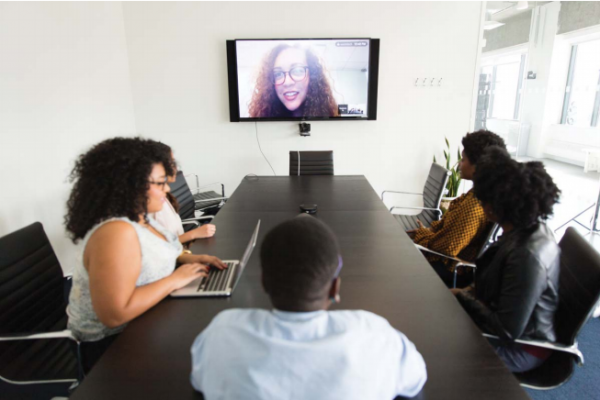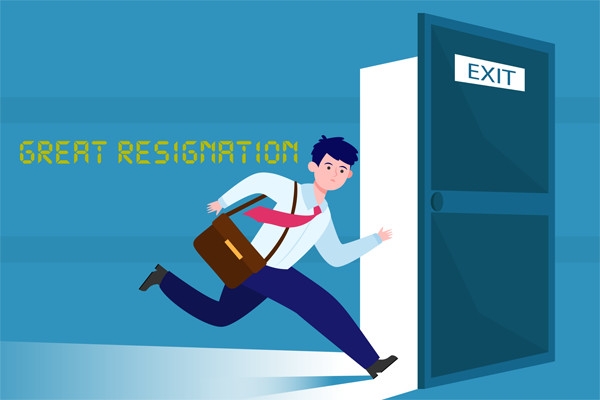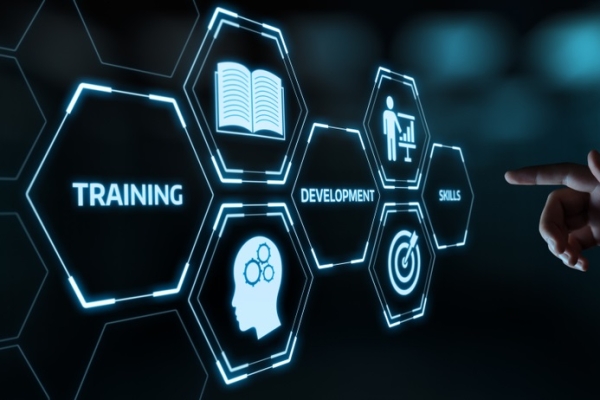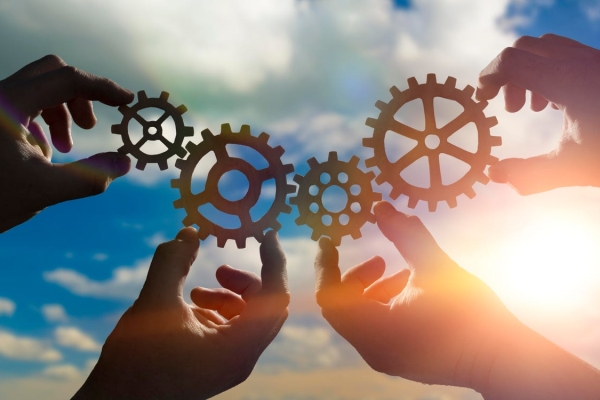“A learning organisation is an organisation that is continually expanding its capacity to create its future”- Peter Senge1
A common COVID-19 grievance of our partners and peers in the training, leadership development and coaching fraternity both in India and globally has been how budget cuts and shifting organisation level priorities has adversely impacted their revenue pipeline. And while every industry and profession has had to weather its own storm owed to the challenges that this period brings, a number of training and development providers have gone from packed pre-COVID calendars to barely being able to stay afloat at this time.
A Mckinsey report released during COVID has found that roughly half of the in-person programs through to June 30, 2020 have been postponed or cancelled in North America; with close to 100 per cent of them being cancelled in parts of Asia and Europe2. And while this may not come as a surprise given the social distancing requirements, even as training providers move quickly to pivot business models, adapt to the online frameworks and more, to stay relevant, with limited to no budgets allocated there is little respite to their efforts.
A Gallups August 2020 report articulated the sentiment quite effectively by saying “Budget cutting is like pruning trees. You need to do it to help your organisation thrive in the long run. But if you cut too much, in the wrong places, you might damage the tree”3.
At a time when leaders and employees are facing some of their biggest professional hurdles, be it around adapting to a new model of work, around their mindset and emotional health, around re-evaluating individual and organisational level priorities, or focusing on keeping themselves, their teams and companies relevant, while balancing the challenges of life and work, are they receiving the requisite support to enable them to power through?
And while it is common practice to scale back on employee development initiatives when the times are tough, can organisations afford to put capability building on the back burner in a VUCA (volatile, uncertain, complex, ambiguous) world riddled with a new reality?
Prioritising Capability Building
Our work and research in the space of leadership development during times of uncertainty based on the model of Flow developed by Hungarian psychologist Mihaly Csikszentmihalyi, has found that for individuals to reach a state of high productive action towards performance requires an alignment of mindset, capability and challenge.
And at a time like today where the level of challenge is unprecedentedly high, what are organisations doing to support individuals in managing their mindset, nurturing their emotional health and enhancing their skills and capabilities to ride this new world reality?
A Qualtrics study conducted across more than 2000 employees globally in March/April 2020 has found that 42 per cent of employees have reported a decline in mental health since the COVID outbreak, 66 per cent have reported higher levels of stress, 28 per cent of employees reported difficulty in concentrating, 20 per cent reported taking longer to do a task, 14.7 per cent have reported difficulty in thinking, reasoning or deciding and 12.4 per cent have put off challenging work and 11.8 per cent are having difficulty in juggling responsibilities.4
As a leadership and performance coach who has been conducting webinars and sessions through the COVID period, the challenges that I often see across program attendees and individual clients are in line with the findings of the Qualtrics study. The common difficulties that individuals are facing at this time seem to revolve around feelings of low productivity, decreased motivation, increase in negative thoughts, stress and overwhelm, difficulty sleeping, struggles with social isolation and an increased fear and insecurity over the future.
So, if you are one of those organisations who understand the overall impact of investing in employee development but are restricted by budget, here are five ways in which you can prioritise your investment in capability building at this time:
1. Balance the virtual and the live: While most organisations have successfully implemented e-learning through cloud-based offerings, virtual or augmented reality and even AI learning in some cases, the focus on instructor led or live learning has reduced during this time. For organisations to maintain the intimacy, connection and individual focus that comes with highly engaged and impactful learning environments, it is essential that they adopt a blended approach with the optimum balance of self-paced online and live programs.
2. Focus on Behavior: With an increased focus on technology and digitisation across industries and job roles, it is crucial that organisations continue to prioritise behavior skills in as much as they have the development of critical technical capabilities. According to a Gallups 2020 report, it has been estimated that 85 per cent of the jobs that will exist in 2030 haven’t been invented yet.5 The pandemic has in fact demonstrated that people leaders have had to carefully balance making business and financial decisions, driving productivity and performance, while simultaneously being advocates of good mental health among their teams. Behavior skills such as resilience, emotional intelligence, collaboration, handling difficulty, developing psychological safety and trust, motivating yourself and others, and more, have been critical to the smooth functioning of teams during COVID.
A Gartner report on the 9 Future of Work Trends Post COVID-19 has suggested that one of the biggest shifts in organisational design is going to be the move from efficiency to resilience.6 In a fast-evolving dynamic world, resilient organisations will be better positioned to course correct quickly to adapt to changing circumstances. And therefore, behavior skills are key to get leaders and teams to move quickly and manage change effectively.
3.Create a Platform for Individual Conversations: The pandemic has clearly demonstrated that there is no one size fits all and that while we are all in the same storm, it has become incumbent on each individual to successfully steer their own boat. While it is near impossible to control how employees experience the world outside the organisation at this time, creating a platform that provides the requisite guidance is important. Coaching conversations with expert coaches, emotional health sensitisation programs, support groups and frequent check-ins will be key to address individual challenges as they happen.
4.Future of Work skills: As organisations continue to work from home or adopt hybrid work models even in the medium or long-term, skilling individuals and teams to develop the future of work skills will be essential. Learning and development activities will need to move away from a tick box approach to an outcome-based one. Skill building relating to managing virtual teams, conducting online meetings, building collaboration in silos, managing mindset, innovative thinking, developing agility, building commercial awareness and more will be important to develop to ensure that teams thrive in the new reality.
5.Make it Fun and Engaging: With reduced social interaction during COVID, an almost transactional approach to life and work, no water cooler chats, lunchtime workplace gossip or post work plans, these learning and development programs can play a significant role in employee engagement and improving morale. Whether it is in building a network of learners or throwing in that new dimension to the employees work week, these programs can provide the necessary fun and relief that we could all do with as we navigate the mid-phase of the pandemic.
1. The Fifth Discipline: The Art & Practice of The Learning Organization by Peter M. Senge
3. https://www.gallup.com/workplace/309284/ways-continue-employee-development-covid.aspx
4. https://www.qualtrics.com/blog/confronting-mental-health/
5. https://www.gallup.com/workplace/309284/ways-continue-employee-development-covid.aspx
6. https://www.gartner.com/smarterwithgartner/9-future-of-work-trends-post-covid-19/
Follow and connect with us on LinkedIn, Facebook, Instagram, Twitter for latest HR news and insights
.png)
Do you look forward to permanently working from home after the pandemic subsides?
Trending
-
SBI General Insurance Launches Digital Health Campaign
-
CredR Rolls Out 'Life Happens' Leave For Its Employees
-
Meesho Announces 30-Week Gender-Neutral Parental Leave Policy
-
Microsoft Unveils Tech Resilience Curriculum To Foster An Inclusive Future
-
60% Indian Professionals Looking For Job Change Due To COVID: Survey
-
SpringPeople And Siemens Collaborate For Digital Transformation Push
-
86% Professionals Believe Hybrid Work Is Essential For Work Life Balance: Report
-
Almost 1 In Every 3 People's Personal Life Affected Due To Work Stress
-
Meesho Rolls Out Reset And Recharge Policy For Employees
-
80% Of Talent Leaders & Academics Say Pandemic Changed Skill Needs For Youth: Report
-
Hero Electric Rolls Out 'Hero Care' Program For Employees
-
Human Capital In Collaboration With ASSOCHAM Hosts Virtual Conference
-
IKEA India, Tata STRIVE Collaborate To Create Employability And Entrepreneurship Opportunities
-
SAP India, Microsoft Launch Tech Skilling Program for Young Women
-
DXC Technology, NASSCOM Collaborate For Employability Skills Program
-
Lenskart To Hire Over 2000 Employees Across India By 2022
-
Mindtree Launches Learn-and-Earn Program
-
Tata AIA Extends 'Raksha Ka Teeka' To Its Employees
-
Swadesh Behera Is The New CPO Of Titan
-
NetConnect Global Plans To Recruit 5000 Tech Professionals In India
-
Hubhopper Plans To Hire 60% Of Indian Podcasters By 2022
-
Corporate India Needs More Women In Leadership Roles: Report
-
Aon to Invest $30 Million and Create 10,000 Apprenticeships by 2030
-
Tech Mahindra Launches ‘Gift a Career’ Initiative for Upskilling of Youth
-
40% Women Prefer Flexible Working Options in Post-COVID World: Survey
-
3 out of 4 companies believe they can effectively hire employees virtually: Report
-
Vodafone , CGI and NASSCOM Foundation launch digital skills platform
-
Odisha: Bank, postal employees to deliver cash for elderly, differently-abled persons
-
Skill India launches AI-based digital platform for "Skilled Workforce"
-
Hiring activity declines 6.73% in first quarter: Survey
-
70% startups impacted by COVID-19 pandemic
-
Bajaj Allianz Life ropes in Santanu Banerjee as CHRO
-
Over 70 Percent MSMEs look at cutting jobs to sustain businesses
-
93 Per Cent employees stressed about returning to office post-lockdown
-
Johnson & Johnson India announces family benefits for same gender partners
-
Indian firms turning friendly towards working mothers
-
Welspun India names Rajendra Mehta as new CHRO
-
Wipro partners with NASSCOM to launch Future Skills platform



Human Capital is niche media organisation for HR and Corporate. Our aim is to create an outstanding user experience for all our clients, readers, employers and employees through inspiring, industry-leading content pieces in the form of case studies, analysis, expert reports, authored articles and blogs. We cover topics such as talent acquisition, learning and development, diversity and inclusion, leadership, compensation, recruitment and many more.
Subscribe Now












































Comment